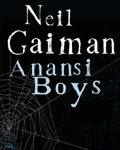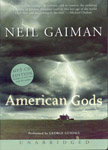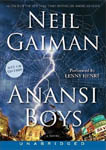
 Conan The Barbarian
Conan The Barbarian
Based on the Motion Picture directed by John Milius; Performed by a FULL CAST
33 1/3 RPM LP – Approx. 43 minutes [AUDIO DRAMA]
Publisher: Power Records
Published: 1982 (Out Of Print)
Product #: 1134
Themes: / Fantasy / Revenge / Battle / Mythology / Gods / Snakes /
“I was born on the battlefield! The first sounds I
heard were the screams of dying men!”
It took almost a half of century for Robert E. Howard’s legendary thief, warrior, barbarian and eventual King to debut on the silver screen. In the fifty or so years prior to the 1982 theatrical release of Conan The Barbarian, and against all odds, Conan had clutched fate by its throat and demanded success in practically every media it was translated into. Novels, magazines, newspaper syndication and comics, they were all conquered by this sword-wielding barbarian. These conquest continually garnished him a growing legion of loyal followers. So by Conan’s God Crom, it only made sense for Hollywood to be this fantasy character’s next path to tread under his sandaled feet.
Ridley Scott… Oliver Stone… Many talented directors attempted to bring “Conan The Barbarian” to theaters before writer/director John Milius’ inspired script finally got it right and brought the project to fruition. John’s vision, which some critics called “horribly violent” and “sexist”, captured the true lifeblood and essence of the Hyborian Age and all its brutality and sinister ways. Directed on location in Spain for Universal Pictures, it starred world renowned bodybuilder Arnold Schwarzenegger as Conan of Cimmeria and Shakespearean actor James Earl Jones as the dreaded snake cult leader Thulsa Doom.
As always, making a motion picture about any character with a large fanbase creates controversy, and Conan The Barbarian was no different. Many fans questioned most of the inexperienced cast and their acting ability. Arnold Schwarzenegger was a world champion bodybuilder. Valeria, played by Sandahl Bergman, was a professional dancer. Even the director’s surfing partner took on the role of Subotai. Overwhelmingly, other than James Earl Jones, the cast was perceived as great lot of physical specimens rather than accomplished actors. Confusion also lingered among purists regarding Milius’ choice to retell Conan’s origin, which somewhat contrasted with the purist understanding of the barbarian’s earlier years. But other fans defended the retelling, arguing that creator Robert E. Howard never truly fleshed out Conan’s childhood, only briefly touched upon it. Moreover, they were quite pleased that Milius honored the legacy of Conan by sampling script ideas from many of Conan’s original tales like “The Tower of the Elephant” and “The Thing in the Crypt”.
Whichever side fans took, most couldn’t help not to revel in the sure beauty of the film… especially its Fantasy panting-like cinematography, awe inspiring original score and its seriousness in tone (something sorely missing in the later and utterly inferior sequel.) So, like all forms of media before it, the film Conan The Barbarian was a success and is now considered a classic among fans of the sword & sorcery genre. Conan was once again triumphant.
That same year, Power Records released the story of “Conan The Barbarian” which was surprisingly good among movie adaptation albums of its time. Known more for creating stories for adolescents, it was really quite astonishing to see Power Records adapt a “R” rated film, gloriously filled with masses of graphic violence, explicit nudity and even an orgy! The adaptation did exclude the “worst” parts of the film of course, but most mothers I know would balk upon their children listening to lines like “The last image I saw was my parent’s heads on a pair of Vanir pikes!” This adaptation was obviously made for young adults.
A whole new cast of actors were used, and the actors chosen for Conan, Subotai and The Wizard were an excellent choice. Conan is more intelligent than he appeared in the film, in the vein of the original Robert E. Howard writings. Actually, the original film script called for Conan to have more dialogue and narrate his own story rather than Mako’s ‘The Wizard’ doing the chronicling. But due to Schwarzenegger’s thick accent, much of Conan’s lines were trimmed down and/or removed in trade of Arnold’s powerful visual presence, which is where a problem lies. I actually had trouble appreciating this adaptation at first. Being a great fan of the film, I had the original actor’s voices and their dialogue (or Conan’s lack thereof) imprinted in my mind so deeply, it was hard to listen with a fresh perspective. Challenging yourself to give it a second “go around” is where the reward lies!
Conan narrating his tale is not the only difference between the adaptation and the actual film. Though fans of the film will be pleased to know that practically all of the story differences you hear were actually in the original John Milius script, before they were edited for various creative and/or monetary reasons. Some differences are subtle, like Thulsa Doom’s high priests are named Yaro and Rexor (rather than the familiar Rexor and Thorgrim). Others are larger events, like when Conan and Subotai enter the cities of Zamora looking to plunder the riches of the snake tower. While traveling through the filthy city of Shadizar, the script & adaptation details an extra scene of Conan and Subotai witnessing a snake cult procession moving through the streets. This is where Conan first hears the cursed chant of his nemesis Thulsa Doom since his parent slaying so long ago. He also gets his first glance of the haunting Princess he would later steal for King Osric, as she calls out to Conan from her platform, commanding him to “throw down his sword” in the name of Set. It’s a great scene.
My only gripe with the record adaptation is I wish it featured the film’s original score. While the orchestration Power Records uses is vast and surprisingly well done, it’s hard to stand against the classic work of composer Basil Poledouris. Though, with their excellent cast and matching production values, this can be easily overlooked. Especially when listening to the “new” dialog and scenes ultimately left on the cutting room floor. As a fan of all things Conan and especially the films, it creates quite a thrill and leaves you slightly imagining… what might have been.
posted by Akim Bischoff

 A BBC World Service adaptation of Neil Gaiman’s Anansi Boys starring Lenny Henry is going to be broadcast on BBCWS Radio stations later today.
A BBC World Service adaptation of Neil Gaiman’s Anansi Boys starring Lenny Henry is going to be broadcast on BBCWS Radio stations later today. Anansi Boys
Anansi Boys





